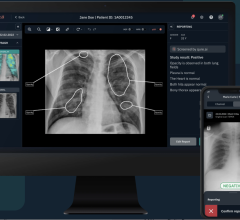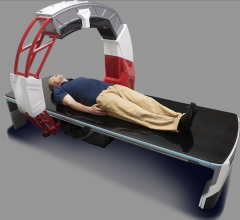
Andrew Spiegel, CEO of the Colon Cancer Alliance, and the medical community at large urges CMS to reimburse for computed tomography colonography (CTC), commonly known as virtual colonoscopy.
June 3, 2010 - The CTC Coalition, consisting of physician providers, colon cancer patient advocates and imaging technology manufacturers, today announced their support for H.R. 5461, a new bill to cover computed tomography colonography (CTC), commonly known as virtual colonoscopy.
If passed, this bill would require the Centers for Medicare and Medicaid Services (CMS) to extend Medicare benefits to include CTC as another colorectal cancer screening option for patients.
“We urge Congress to pass this bill as it will finally allow seniors access to this less invasive alternative to conventional colonoscopy that requires no sedation, and that many elderly patients may better tolerate”, said Andrew Spiegel, CEO of the Colon Cancer Alliance, a member of the CTC Coalition. “Screening aids in the early detection and prevention of colon cancer and saves lives. We know that when patients are given more screening choices, they are more likely to undergo colorectal cancer screening.”
Data collected by the National Naval Medical Center in Bethesda demonstrates that access to CTC raises screening levels. According to Brooks Cash, M.D., integrated chief of medicine and staff gastroenterologist at the National Naval Medical Center/ Walter Reed Army Medical Center, more than 7,000 patients have undergone virtual colonoscopy. According to Cash, 37 percent of patients Navy officials surveyed said they wouldn't have been screened without virtual colonoscopy.
A similar situation has been seen at the University of Wisconsin where overall numbers of screening, both traditional and virtual colonoscopies, have more than doubled per quarter over a 5-year period.
“The addition of CTC as a screening option has increased overall screening rates at UW and it appears that CTC is not replacing OC as an option but instead pulling people off the sidelines,” said David Kim, M.D., an associate professor of radiology. “With this increase in screening, the optical colonoscopy screening numbers have also grown suggesting that that CT colonography is appealing to a group of individuals who did not previously consider screening.”
“This legislation helps seniors by giving them access to the same colon cancer screening options available in the private sector,” said Dave Fisher, executive director of the Medical Imaging & Technology Alliance (MITA). He noted increasing the number of seniors screened for colon cancer could save lives.
Last March, CMS upheld its decision not to cover virtual colonoscopy under Medicare. In the wake of that decision, more than 50 members of Congress urged CMS to reverse its decision and cover CTC.
“The latest clinical research all points to the fact that CT colonography is effective as a screening tool for colorectal cancer. It is also no secret that the majority of those who should be screened for the disease opt against having the exams currently covered by Medicare. CT colonography can overcome patient objections to being screened, detect cancer early when it is most treatable, and ultimately save lives. If CMS will not reconsider this coverage decision, Congress should vote to mandate Medicare coverage of CT colonography,” said James H. Thrall, M.D., FACR, chair of the American College of Radiology Board of Chancellors.
More than 140,000 Americans are diagnosed with colorectal cancer every year with nearly 50,000 dying because it is detected too late. Colorectal cancer is the third most frequently diagnosed cancer and the second leading cause of cancer death in both men and women in the United States, despite having a 90 percent cure rate when detected early. By increasing screening rates for those at the greatest risk of colorectal cancer, those over the age of 50, a great majority of these cancers and deaths could be prevented.


 August 09, 2024
August 09, 2024 








